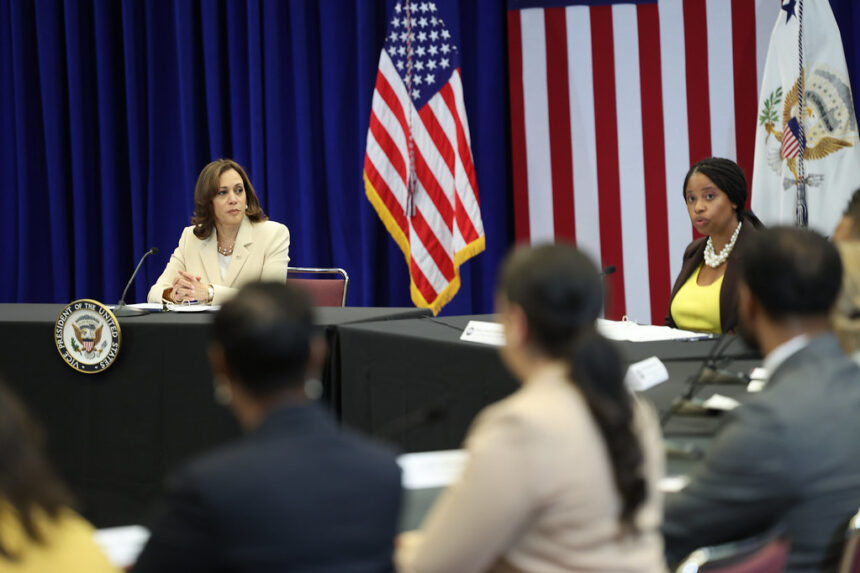On Wednesday, Vice President Kamala Harris will unveil an ambitious economic plan that may have a significant impact on new small business.
Harris is introducing a proposal to raise the tax deduction on startup expenses for small business from $5,000 to $50,000.
The move is intended to give greater relief to aspiring entrepreneurs, and to draw a sharp contrast between the economic policies of Trump and her Republican rival.
The plan will be unveiled during an event to promote the New Hampshire campaign. It represents a 10 fold increase over current allowance.
Harris hopes that by expanding the deduction he can alleviate the financial burden of entrepreneurs, and encourage the growth of smaller businesses which are vital to the US economic system.
According to the Small Business Administration, there are approximately 33,000,000 small businesses in the United States. These companies employ 46% of private sector employees and 70% of new net jobs have been created since 2019.
Harris’ proposal includes measures that streamline the application process for occupational licenses, and create a fund to help small businesses expand. This will also assist community banks with covering their interest costs.
Can Harris pass her proposal for a tax break?
Harris’ ambitious economic agenda could face obstacles despite its ambitions. The proposed changes could be met with resistance from both corporations and Congress, particularly since President Joe Biden’s similar initiatives have also been opposed.
Kevin Hassett, Stephen Moore and other Trump economic advisors have criticised Harris’ proposals. They claim that they will exacerbate inflation, and threaten the stability of the economy.
The proposal is likely to become the focus of debate in the upcoming September 10th crucial debate, where Trump and Harris will clash over economic policy.
Harris’s plan also allows new businesses the option to defer the claim of $50,000 for several years, or wait until their business is profitable before claiming the deduction.
The added flexibility may make this benefit more available to entrepreneurs at various stages in their financial journey.
The IRS has had a long history of problems in ensuring that small businesses tax breaks are received by the right recipients. This was especially true during pandemics when fraudulent claims were rampant.
Harris has yet to clarify which startups or small businesses are eligible for the expanded deduction.
Small business Applications: 25 Million New Apps
Harris also plans to increase the number of small businesses she will be able to serve during her first tenure if elected. This is a substantial improvement over the numbers currently recorded by the Biden Administration.
This proposal is a countermeasure against Trump’s image as being pro-business, since he supports making the tax cuts he implemented during his first term permanent as well as lowering corporate tax rates.
Trump often uses rhetoric to portray Harris’ policies in a negative light, such as his statements made on Twitter recently predicting deteriorating economic conditions during her tenure.
Harris’s plan is part of an effort to reduce high living expenses, such as housing, food, and health care, that voters often cite.
Her economic program also contains a federal prohibition on “price-gouging” within the food industry. This measure is intended to combat artificially high grocery prices.
This proposal was criticized by business and economic groups.
Questions remain as Harris builds her economic platform about her proposed administration’s approach to business regulation and antitrust enforcement.
Wall Street fans expect a more business-friendly administration than the Biden Administration.
Harris’s new plan for tax deductions could play a key role in changing voter perceptions, and reinforcing Harris’ economic strategy.
The information in this post Kamala to offer $50,000 tax credit for small business startups: What You Need to Know may change as new developments unfold.
This site is for entertainment only. Click here to read more






